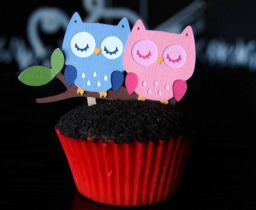
"Logic!" said the professor. "What do they teach in school these days?"
A cupcake. Twilight Sparkle. A simple thought.
What could possibly make this an interesting story? No... it's not grimdark. Shame on you.
Twilight delves deep into the heart of Logic in order to determine whether it is ethically right to eat a cupcake. Drink coffee before proceeding if you are prone to headaches. A thanks goes out (from me...) to the people who make my life as crazy as it is. It's tagged as comedy because my mum thought it was funny.
Do enjoy yourselves.
POST MORTEM: Also, be sure to check out the companion story, Sweet Nothings. Read them in any order or both at once.

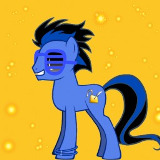

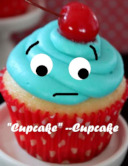
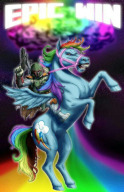




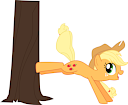

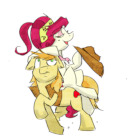
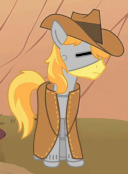






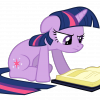
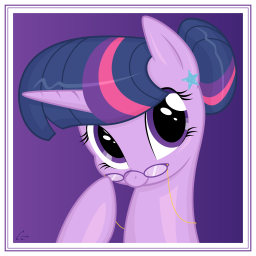

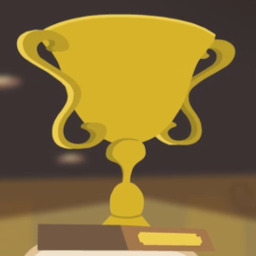
assets0.ordienetworks.com/images/GifGuide/clapping/taxidriver.gif
what is this i don't even
(Very good. I'm a sucker for these kinds of weird psychological mind-trips, and you pulled this off awesomely.)
but seriously, what.
Wat.
Your amazing use of LOGIC astounds me, good sir. I really like your style for this story and would like to see you use it more often. Keep writing brilliance!
Thanks everypony :D
I just have to say this just once that this story made me thought of: If Twilight and Spock were in the same room, they would talk days on end about logic.
1605529 Well, my personal preference would be to have Spock and Pinkie Pie discuss logic, but... May you live long and prosper.
Twilight. You are drunk. Go home.
fancancer.files.wordpress.com/2011/11/77585-caption-drunk-macro-no_im_not_drunk-pinkie_pie-twilight_sparkle.jpg
So what we have concluded is that Logic=Beauty. Therefore, the only beautiful things are logical things. Also, going from the Order and Disorder cannot exist without the other, which is true, Twilight should eat the cupcake, which would be an act of disorder, in order to continue the existence of Order.
And this is why philosophy hurts brains.
1615069 But she conserved the space-time continuum of Logic and Order by neutralizing the situation and giving the cupcake to Rarity. Epic save!
Epic save!
brilliant have a moustache
also this 1392429
I want to see something like this between Pinkie and Twilight. What could go wrong?
1618523 There's a story out there called "Pinkie Pi" you might enjoy, if you haven't read it already. Or even if you have, you probably still would. I'd link it, but I'm too bushwhacked.
1621146 Didn't know about it, I'll give it a look.
1623254 It's really good. Better than my scribbles.
>Somepony was knocking at her door.
>…
>Celestia, somepony was Knocking At Her Door!
This is the second time I ever laughed out loud because of capitalization. The first one being, y'know, helping uncle Jack off his horse.
Great story overall. Insanely silly, but great.
I'm sorry Twilight, but your logic is fundamentally flawed. For you see objectivity, in itself, is subjective. Without an onlooker to purpose what an objective standpoint is, an object, situation, emotion, etcetera simply exists. A waterfall will continue to be a waterfall as long as conditions permit it to continue being a waterfall. Only until an onlooker comes to the conclusion that a waterfall is beautiful will it become beautiful. Another point that sticks out to me like a sore thumb is that there are absolutes. This is entirely false as you have demonstrated. A statement that revolves around circular logic is immediately Illogical. Statements based on circular logic will ultimately result in a paradox as you have also demonstrated. Paradoxes, by nature are illogical by nature, so therefore the statement that the paradox was based on was also illogical.
On another note, absolute statements also ignore context. For example, would you save a beautiful thing if it was to cause you harm.A poison joke flower may look beautiful, so according to your absolute statement, it too must be saved.
We are the ones who color our own existence. Objectivity is simply a standard set by our own subjective view of our existence. There is no such thing as absolute.
tl;dr PHILOSOPHY LOLOLOLOLOL!
1692804 *cracks knuckles* Well, if you'd just...
Rewrite that, please? With some paragraph breaks and punctuation? This seems like a really fun "argument" I'd really enjoy to continue, if you'd like.
.1627516 Ah yes, the EQD gig. I'd have submitted this for them to reject, but it's not long enough. But seriously, yes. Cereal, Seth & Co are hilarious!
P.S lets talk about this some time ok?


From: SHON the
By the way science and philosophy are sociological constructs and perspectives.
I've just had a problem with Converse, Inverse and Contrapositive.
Statement: If it rains, then the soil will get humid.
- Hypothesis: It rains.
- Conclusion: The soil will get humid.
Inverse: If it doesn't rain, then the soil won't get humid. (INCORRECT)
Converse: If the soil gets humid, then it rains. (INCORRECT)
Contrapositive: If the soil doesn't get humid, then it doesn't rain. (INCORRECT)
WHAT AM I TO MAKE OF THESE!?
6514861 Ah, it's something I probably should have clarified when I wrote this...when I was younger...
Logically speaking, contraposition means that a logical statement and its contrapositive are logically equivalent. In formulaic terms, the contrapositive of conditional statement A → B is ¬A → ¬B. This means that a conditional statement must be constructed in a manner which reduces it to the basic definitions of its every tenet. Moreover it must contain enough quantifiable veracity to be reasonably sound. The problem with your conditional statement "If it rains, then the soil will get humid" is that, although it might be unidirectionally accurate in the sense that it accounts for the correlation of two events, it does not secure itself by reciprocal definition to its adjacent theses. This makes it useful as a scientific experiment on multiple causations of humidity in soil, but not as an exercise in philosophy.
A common way of visualizing logical equations is through the use of Venn diagrams. The brilliance of a Venn diagram is that it shows the hierarchy of categories necessary to postulate the knowable regions of truth about the universe. Take, for example, the statement "All bananas are fruit." Here we have the object (banana) and the measurable category to which it belongs (fruit). We are therefore able to reassemble the assertion into a conditional statement, "If something is a banana, then it is a fruit" and its observably true contrapositive, "If something is not a fruit, then it is not a banana." This effect can of course be seen with a variety of examples.
Allow me to point out a common mistake in assembling a conditional statement, and that is confusing position of category and object. We start with the simple phrase, "Unicorns have horns" and proceed to the conditional statement, "If something has a horn, then it is a unicorn." Well, obviously this is false, because minotaurs have horns and they're not unicorns, so the contrapositive must be false as well: "If something is not a unicorn, then it does not have a horn." The problem here is phrasing. Had we said "If something is a unicorn, then it has a horn" then we would have seen a more accurate contrapositive: "If something does not have a horn, then it is not a unicorn." It's a slight deviation to note this, but it's important to mention that by claiming all unicorns have horns it does not follow that a unicorn who has lost his horn is no longer a unicorn in essence. What the conditional statement attempts to set is the nature of a unicorn, not the legal definitions of a thousand eventualities. It is perhaps better to say "If something is a unicorn, then it is in concordance with its nature to have a horn." In any event, the main point is that in our statement "If something is a unicorn, then it has a horn," we have placed unicorns into a small Venn circle within a defined category, which would be represented by the larger Venn circle, "Things With Horns."
By proposing your statement, "If it rains, then the soil will get humid," as a conditional statement subject to logical analysis, you have placed made your object the rain, and placed it in the category of Things That Happen When The Soil Gets Humid. This is a roller coaster with only half a track, because both parts of your conditional statement can be influenced by a multitude of outside factors. The reason why your contrapositive fails the test of veracity is because the original statement is flawed logically--it fails to define itself in both directions. So you see that in order for a statement to work well within the confines of logic, it must not only be quantifiably true, it must also fit the criteria set forth by the order that logic requires.
I hops that helps, cheers!
--Squiddy
6522139 I bet it will; I'll just read it all tomorrow 'cuz I got a test tomorrow. Gotta study today.
8237563
This story is five years old; my only question is, how did you happen across it?